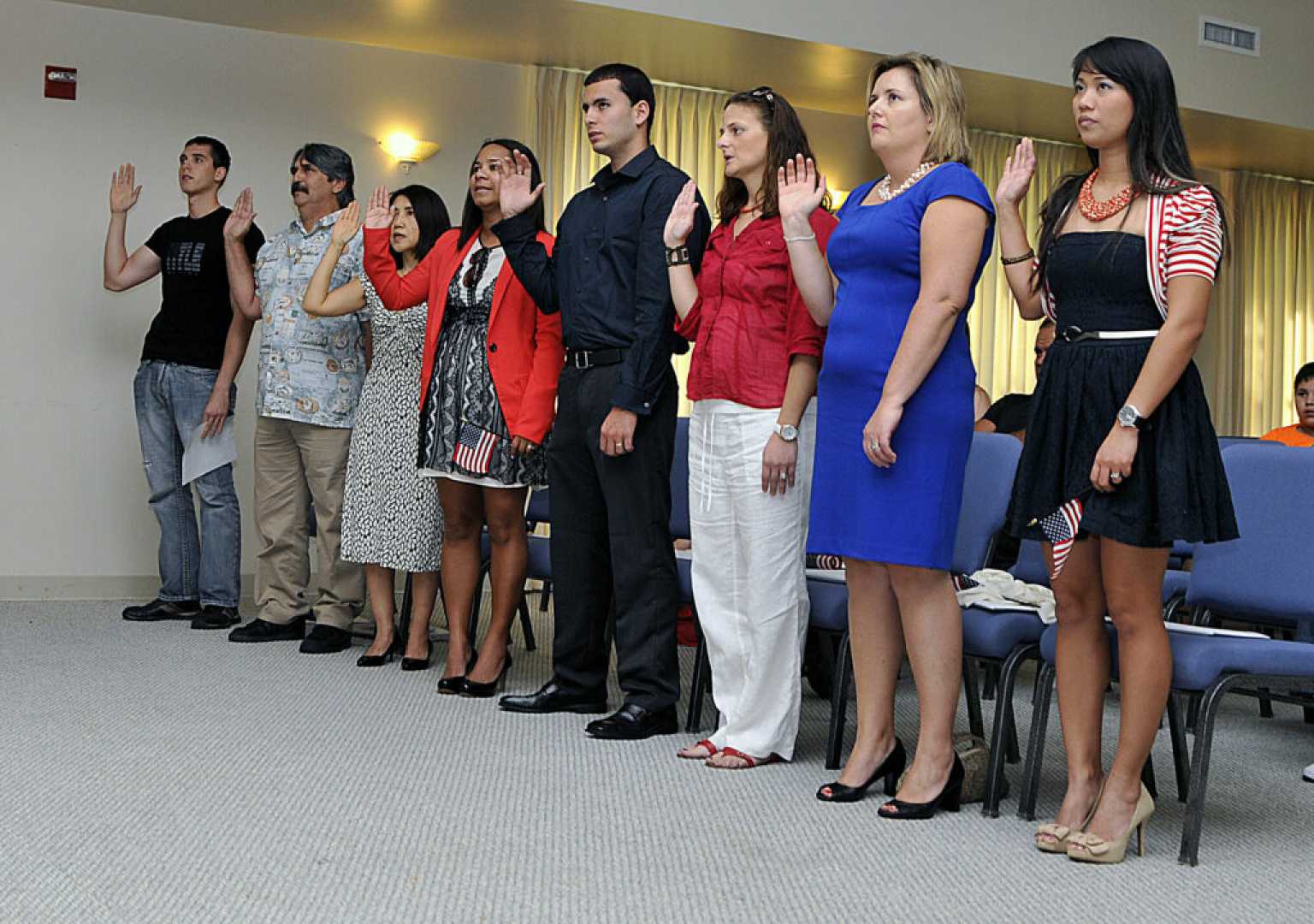News
New U.S. Citizenship Test Set to Challenge Immigrants

WASHINGTON, D.C. — The Trump administration is implementing a more rigorous civics test for immigrants applying for U.S. citizenship. Starting October 20, green card holders will face a test that requires them to correctly answer 12 out of 20 questions on American history and government, double the previous requirement of six out of ten.
Matthew Tragesser, a spokesman for U.S. Citizenship and Immigration Services (USCIS), emphasized the change is to ensure that new citizens are ‘fully assimilated’ and capable of contributing positively to America. The number of questions in the pool will increase from 100 to 128, introducing more complex inquiries such as, ‘Why did the United States enter the Persian Gulf War?’
Previously straightforward questions about U.S. geography, such as naming the ocean on the West Coast, will be replaced with questions requiring deeper historical understanding, according to USDA. This development marks a significant shift in the naturalization process, with advocates warning that the increased difficulty may further discourage eligible immigrants.
Julie Mitchell, legal director at the Central American Resource Center in Los Angeles, noted that the new requirements could disproportionately affect individuals with low literacy levels or limited access to study resources. ‘These changes will introduce barriers that could impede the naturalization process for many,’ she said.
Alongside the tougher civics test, applicants must also demonstrate ‘good moral character.’ Previously, lack of criminal record sufficed. Now, they must provide evidence of positive societal contributions. Immigration officers may conduct thorough background checks, potentially interviewing associates of the applicants.
USCIS Director Joseph Edlow expressed the need for a higher standard in assessing applicants’ attachment to American values. He remarked, ‘We need to know more about those seeking citizenship to ensure they align with our democratic principles.’
However, not all experts agree with the changes. Amanda Frost, a law professor at the University of Virginia, argued that the current process is sufficient. ‘There’s no evidence that the existing system fails to identify those who will be active, contributing citizens,’ she said, highlighting that many successful businesses have been founded by immigrants or their children.
The changes come amid broader immigration policy adjustments and have sparked concerns about the potential for reduced naturalization rates among eligible immigrants.
As the new regulations take effect, the impact on those seeking citizenship remains to be seen, but advocates continue to encourage applicants to pursue their naturalization despite the added challenges.












